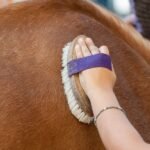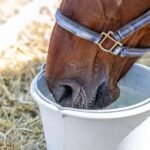Have you been dreaming of galloping through open fields on your very own horse? Owning a horse is incredibly rewarding. But it’s also a big commitment that requires thorough preparation. Whether you’re new to the equestrian world or looking to expand your herd, it’s vital to know what you’re getting yourself into. Here, we’re discussing several care considerations before you buy a horse so that you’re ready for commitment and companionship.
Choosing the Right Horse for You
Selecting the right horse is crucial. It’s important to find one that matches your lifestyle and experience level. If you’re a beginner, look for a well-trained and gentle horse. Experienced riders might prefer a horse with more spirit and advanced training.
When inspecting a potential horse, pay close attention to its temperament. Observe how it reacts to different stimuli and how easily it interacts with people. Take note of any signs of nervousness or aggression which could indicate future problems.
Housing and Pasture Management
Creating a safe and comfortable environment for your horse is critical. Your horse needs a stable or shelter that protects it from harsh weather. Make sure the shelter has proper ventilation and is spacious enough for your horse to move comfortably.
Pasture management is another critical consideration. Rotate pastures to prevent overgrazing and make sure there’s a steady supply of fresh grass. Always provide clean water and high-quality hay to keep your horse healthy and happy.
Scheduling Routine Vet Checks
Regular veterinary care is non-negotiable for horse owners. Schedule routine vet checks to monitor your horse’s health and catch any issues early. Vaccinations are crucial for preventing diseases and keeping your horse in peak condition.
Don’t forget about dental care. Horses need their teeth checked and floated (teeth filing) regularly to avoid eating problems. Deworming should also be part of your routine healthcare plan to prevent parasites.
Consistent Training and Exercise
Your horse’s physical and mental well-being depends on consistent exercise and training. Develop a training plan tailored to your horse’s abilities and your personal goals. This keeps your horse fit and engaged in its surroundings.
Training should be a mix of groundwork and riding exercises. This will build muscle and strengthen the bond between you and your horse. Consider varying the routines to keep things interesting for both of you.
Protective Leg Gear for Your Horse
When it comes to exercise, your horse needs protective leg gear to prevent injuries. This is especially crucial if you’re planning to participate in competitions. Boots and wraps protect your horse against cuts, bruises, and strains.
Different types of leg gear serve various purposes. For instance, bell boots are great for protecting the hooves, while splint boots offer support to the tendons. Use the appropriate gear based on your horse’s activity level and needs. Ask your preferred vet about their best recommendation for your horse’s gear.
Owning a horse is a joyful experience, but it comes with its fair share of responsibilities. By choosing the right horse, providing proper housing, maintaining health care routines, and ensuring consistent training, you set the foundation for a happy and healthy partnership. Take these care considerations to heart before you buy a horse and embark on a rewarding journey.











